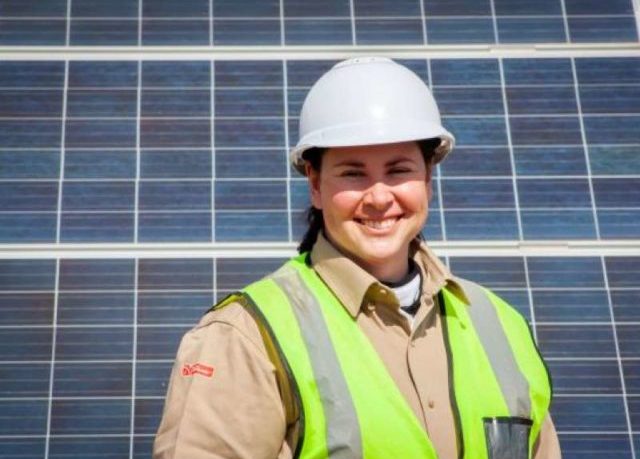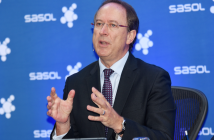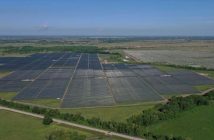- Sulana de Jager, is the plant manager at De Aar Solar Power, having stepped into the renewable energy sector in 2016.
- She is responsible for executing and managing the plant’s operational plans, as well as plant maintenance, human resource, and HSE.
- Her role directly impacts the areas of cost, risk, and performance management of the plant, which is located in the Northern Cape of South Africa.
I HAD TO OVERCOME MANY CULTURAL BARRIERS TO GET HERE.
In conversation with Sulana de Jager
Sulana, you entered the renewable energy sector as a beneficiary of the Globeleq Scholarship Fund (GSF) and are now managing the operations for a utility-scale solar PV plant. Please outline the highlights of your career.
I can summarise the highlights of my career over the last decade into five clear points, starting with being accepted into CPUT to study Mechatronics and then receiving a scholarship fund from Globeleq.
I was very fortunate to have the opportunity, and thereafter to attend the first-ever wind turbine technician training course offered in South Africa.
With this under my belt, I joined the Globeleq operational team, in a permanent capacity at De Aar Solar Power, as a solar technician. This gave me the experience and skillset to expand and take on a managerial position, which led to being promoted to my current role.
What does it mean to you, as a woman, to be working in the renewable energy sector?
For me it is a wonderful achievement – to be able to work in the technical or operational department of the renewable energy sector. I had to overcome many cultural barriers to get here. But, I can honestly say that this industry has been very welcoming and supportive.
As a woman, who had to battle stigmas, it is extremely heartfelt that the renewable energy sector has been so open and empowering.
Would you encourage other women to enter this sector?
Yes, absolutely.
Renewable energy is like the new age movement but in the energy sector. It is not hindered by historical or bygone discriminations, instead, it is open and welcomes gender and race equality.
As the plant manager at De Aar Solar Power, you live far away from your family, how do you manage this?
I am driven and content with my work.
Our company provides a family environment and the people we work with really care and love one another. Everybody wants the best for each other. The feeling and encouragement that my colleagues give me, helps to fill the void.
The company also ensures that there is always enough work to keep us occupied. So, when I go home, I tend to enjoy the solitude and personal time that I get.
What do you see as the role of an IPP in a rural community?
The first thought that comes to mind is a mini-grid.
Since rural communities do not have the infrastructure of cables and the villages are some distance apart, the most economic and efficient means to provide electricity to the rural communities, from my perspective, will be to install mini-grid systems.
EVEN THOUGH THE RENEWABLE SECTOR EMBRACES EQUALITY, IT IS STILL HARD WORK.
What message would you like to share with young women who are considering getting into engineering or the power sector?
Never ever give up. Even though the renewable sector embraces equality, it is still hard work. The engineering field will always be challenging regardless.
Be yourself, own your mistakes and learn from them. That is the only way to become the best; and always remember that respect is earned, not just a given.
ESI Africa is celebrating 25 years in the market and has witnessed the challenges and successes. In your opinion, what were the most significant milestones in the evolution of Africa’s energy sector over the last 25 years? What lies ahead for Africa in the next 25 years?
Definitely South Africa’s Renewable Energy Independent Power Producer Procurement Programme (REIPPPP), which is run by the IPP Office. The world has identified the need for Africa to be developed and that renewables will be the way to go.
In the next 25 year, I think that mini-grid systems will be the future and the most efficient and effective manner of uplifting the rural sector in Africa.
Author: Nicolette Pombo-van Zyl
This article was originally published on ESI Africa and is republished with permission with minor editorial changes.













